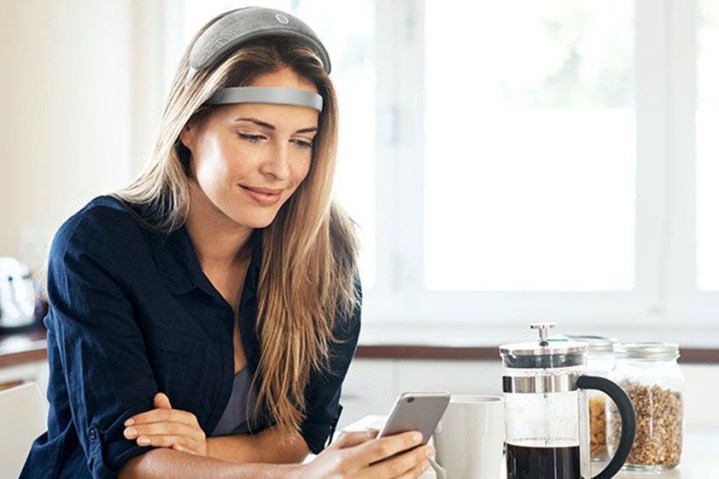
Many of us suffer from sleep deficiency and/or poor quality sleep. That being considered, CES 2019 is really shaping up to be a great year for sleep tech. One of the companies aiming to help us rest better is Urgonight, which is showing off its non-invasive headband at the show, aiming to help train our brains to sleep better.
More CES 2019 coverage
- Our CES 2019 Hub: The latest news, hands-on reviews, and more
- Opté is launching a beauty wand to banish blemishes
- Cordless hair dryers aren’t really a thing but Volo wants to change that
- Felix Gray’s latest glasses cut down on blue light to help you sleep
- Here’s the oddest and weirdest wearable tech we saw at CES 2019
Developed by French startup Urgo Group, the headband connects to an app that is worn during three 20-minute sessions each week. During these sessions, the band takes an EEG (electroencephalogram) of your brain and then presents the data on your screen in such a way that helps to train your brain waves to act in a certain manner, a technique known as visual neurofeedback.
Urgo says that viewing these special images at least three times a week for those 20 minutes helps develop healthier sleep patterns in as little as three months. Since this is all done during waking hours — and there’s no need to wear the headband during the night — getting better sleep doesn’t require making yourself uncomfortable in the process.
This is great news. Insomniacs know any kind of disruption can make your insomnia worse — whether it be sounds, light, or touch — so instead of wearing something or listening to something at night, you can focus on whatever you need to do in order to make yourself as comfortable as possible naturally.
“Urgonight allows consumers to fit in exercises for sleep in whatever timing or habits that are best suited for their lifestyles,” Urgo founder Guirec Le Lous said in a statement.
Urgo’s research showed that patients were on average falling asleep 40 percent faster, reducing the number of times they woke up during the night by more than half after completing a training cycle. Urgo also suggests you repeat a series of sessions three months after you complete your last one to maintain the positive effects.
There’s one negative though, and that’s the price: $600. But for those of us that may have spent tons of money on medications, sleep studies, self-help materials and whatever else to try and get a good night’s sleep, it doesn’t seem like a high price to pay. Pre-orders are expected to begin in the spring, with delivery coming by the end of the year.
Editors' Recommendations
- Sleep Number’s New 360 Smart Bed monitors and improves sleep health as you age
- This light bulb can track your sleep and monitor your heart rate from afar
- TCL’s unusual NXTPAPER tablet won’t ruin your sleep
- Good at StarCraft? DARPA wants to train military robots with your brain waves
- Sleep Number’s Climate360 smart bed warms and cools sleepers for better comfort


